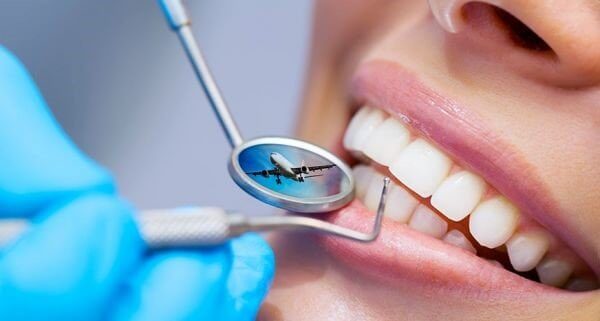As dental health awareness promoting proper oral care is rising in Australia, there’s no doubt that the demand for professional dentists will soon follow suit. Moreover, this demand is not likely to dwindle anytime soon, making dentistry a successful profession that people can choose as a career option. But what’s a dentist without a clinic or the right dental equipment? Don’t let your reputation suffer because of the lack of a few proper essentials to manage patients’ problems. Fully equipped clinics are very important for communities to access the best dental health care they can get. With that being said, this article lists out some of the important must-haves for any dental clinic, so make sure to check them off the list.
Must-have Essentials To Run A Dental Clinic In Australia:
As dental services in the country rise in demand after reeling from the impact of the pandemic, people are more likely than ever to get a consultation. As they make appointments to keep up with all the schedules lost, dentists must be fully prepared to deal with any ailments or issues that can arise. For the list of essential dental equipment, read on below:
1. Comfortability: Aside from the comfortable chairs and tables, what should be made available in the waiting rooms is completely up to the dentists or the designer. However, for the clinic, there are standard prerequisites:
- Dental Chairs: Doctors need to sit for a long time to check up on the patient as they examine the oral cavities. Simultaneously, the patient should also feel relaxed, leaning or lying still for at least half an hour. A dental chair works wonders for both, as it offers a convenient place for patients to lay back as the doctors examine them. Dental Chairs also have a lot of gadgets and gizmos attached to them, all in the reach of the dentist’s hand. Onboard panels allow doctors to set the height or inclination to suit the needs of operation or for the patient’s comfort. Don’t miss out on this investment which could be one of the best for any dental clinic.
- Privacy: It is better to have a wall or an opaque screen to shield the patient as the doctor works on them. A little bit of privacy can be an assurance and will remove any jitters. Take care not to make the place too private as this will be uncomfortable.
2. Storage: Doctors need to store hundreds of things for everyday clinical purposes like pills, medicines, chemical fluids, mould for teeth and other important consumables. Storages must be secure and at the same time easily accessible for the dentists or the nurses.
- Cabinets: Equipment, tools, and other devices need to be stored safely and securely. Cabinets can do well in this regard and allow for the safe storage of medicine or other essential instruments.
- Freezers: There will be a lot of pills, fluids and other medical products that are expensive but easily perishable. To store them for days or weeks, every clinic must have freezing units or cold storage to keep these pills at the right storage temperature.
3. Decontamination Units And Sterilisation Equipment: A lot of patients will be coming through the clinic, and consequently, a lot of micrograms will be transferred daily. To keep the place, devices and other tools used daily in clean and sterile conditions, doctors need to invest in good sterilisation equipment and tools for decontamination. Some of these include:
- Washers for cleaning tools or hand devices
- Autoclaves for sterilising the equipment
There are several protocols set in place by the Australian dental association to keep clinics clean and tidy. Dentists are required by law to follow these protocols.
4. Lighting Systems: Clear visibility is a must when working with a patient, and lighting systems can help with that. They are categorised into three:
- The usual lighting such as bulbs or tube lights to light up the place
- Hand-held lighting devices to analyse the oral cavities for potential decay
- Adjustable lights on dental chairs for the doctor to work on the patient
5. Tools and Handpieces: If the dental chair is a must for comfort, handpieces are a must for accurate diagnosis. All the tools used by doctors which are hand-held come under this label. Modern ones come directly attached to the dental chairs, but tools are also sold separately in the Australian market. Common examples include pliers, probes, hand-held mirrors, forceps and drills. There are a variety of other tools to use for cutting, grinding, sawing or cleaning the teeth.
6. For the Patient: Always make sure that the clinic has the essentials that cater to the needs of the patient. Washing areas, tissues, towels, rinsing cups and medicines are some of the things as they help patients cope with the operation and diagnosis.













